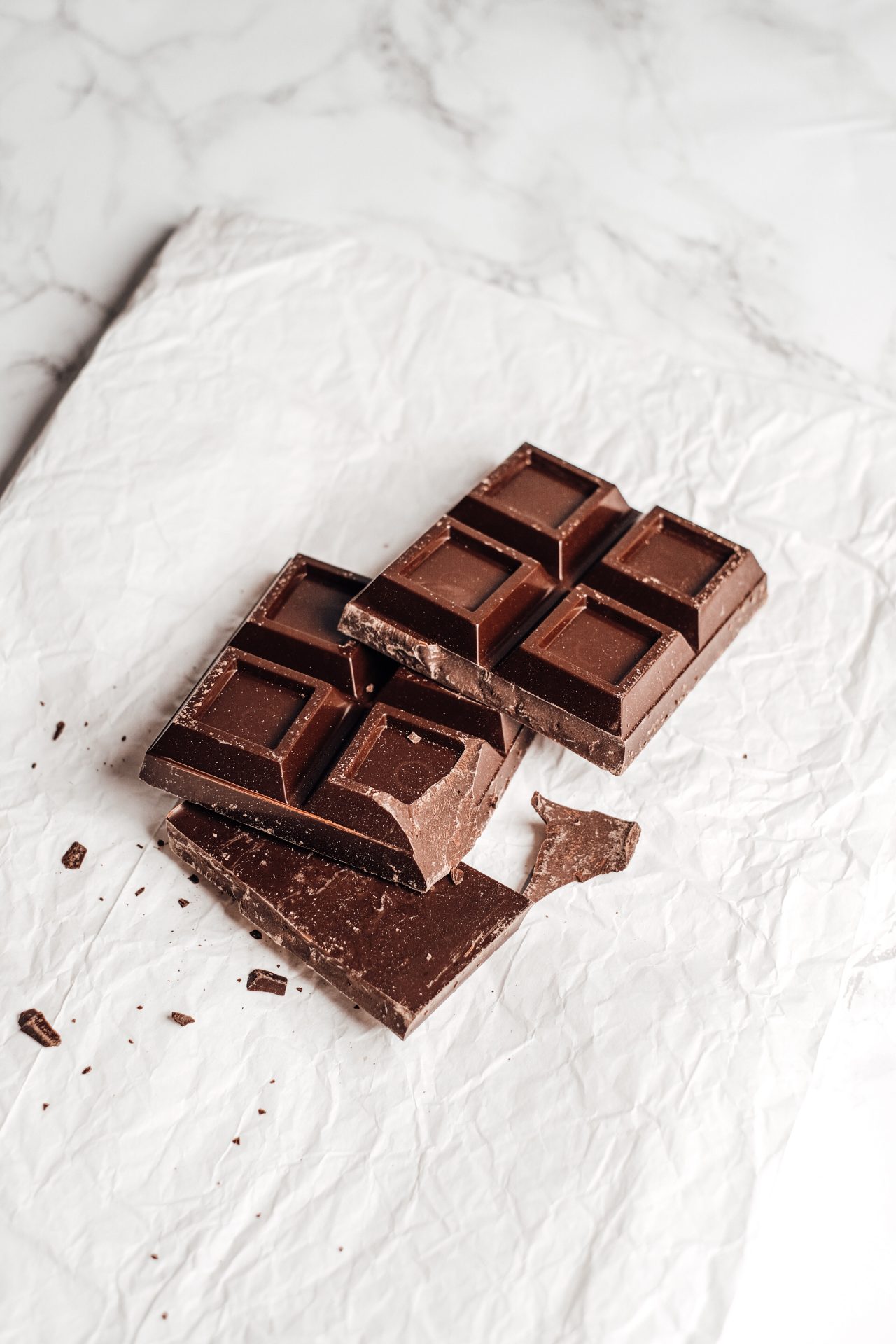Is it a bad idea to eat chocolate at night given that the delicious bars contain caffeine?
I can’t remember the last time I didn’t end my day with a square or four of dark chocolate. My cupboards are choc-full (sorry) of 70% Lindt, salted almond Tony’s Chocolonely, and caramel Raw Halo for nightly snacking purposes.
Dark chocolate comes with a ton of health benefits, from being packed with polyphenols to containing decent amounts of magnesium. These facts might not be at the forefront of my mind when I reach for the deliciously smooth dessert, but it’s good to know that my eating habits are doing some good.
Only… is it really a health-promoting pre-bed snack, or could eating chocolate before bed be detrimental to my sleep? You see, dark chocolate is a natural source of caffeine, which gets its rep for keeping us up rather than helping us nod off.
You may also like
Is decaf coffee unhealthy? The pros and cons of caffeine-free drinks, explained
Natural sources of caffeine don’t just include coffee beans and tea leaves, but also guarana, kola nuts and cocoa beans.
“When people think of caffeine, they likely think of coffee and tea,” says dietitian Josie Porter. “But we can also find caffeine naturally or added to other products such as chocolate, energy drinks, soft drinks and supplements.”
Is caffeine in food different from the caffeine in drinks?
“Caffeine found in drinks generally is digested and absorbed more quickly, typically around 30-45 minutes after consumption,” says Poter. That’s because liquids tend to lack fibre, fats and protein which typically slow down digestion.
That might be a good thing throughout the day, avoiding the energy peaks and troughs that come from caffeine consumption. “However, that slow digestion could be an issue before bedtime for some,” says Porter, as we’re more likely to feel the energy boost into the night.

But that really depends on how sensitive someone is to caffeine. According to James Brady, a nutrition coach at OriGym Centre of Excellence, most dark chocolate in the UK contains less than 25mg of caffeine per 50g bar, while milk chocolate has less than 10mg. That’s around a quarter of the average 100mg of caffeine found in a shot of espresso.
“For most healthy adults, 400 milligrams of caffeine a day appears to be a safe amount. The recommended cut-off time for caffeine use before bed is six hours, so if you go to bed at 11pm, try to avoid consuming anything with caffeine after 5pm. While food will contain less than an energy drink, it’s better to not have any quantity of it before bed if you’re having trouble sleeping,” suggests Brady.
You may also like
How much caffeine should you have a day? An expert explains coffee intake guidelines
“Given the low caffeine content usually found in foods, it shouldn’t be something you need to worry about.”
I haven’t noticed that my sleep is worse for my chocolate habit, but being mindful about the caffeine content of what you’re eating is never a bad thing. If you’re already hitting your 400mg a day through a few coffees, then it might be best to avoid the chocolate or cut down on the flat whites. Those with heart issues, poor mental health or who are pregnant are also advised to limit their caffeine intake.
On the nights you desperately need a good night’s sleep, perhaps skipping the chocolate in favour of something caffeine-free, like fruit and nut butter or a scoop of ice cream, is best. But if, like me, those dark chocolate squares send you to bed happy, then there’s no need to skip.
Images: Getty
Source: Read Full Article
